Introducing the European Youth Capital Partner Cities
From public transport and infrastructure, to cultural and educational programs and democratic policy-making the European Youth Capital title invites cities across the continent to re-think how they engage with and include young people. It is crucial that young people have equal opportunity to shape the social, economic and political life of where they live. The European Youth Capital initiative aims to support both young people and the city to open up these possibilities and lead the way for other European municipalities to follow. Since 2014, the Congress of Local and Regional Authorities of the Council of Europe is an official endorsing partner the European Youth Capital title.
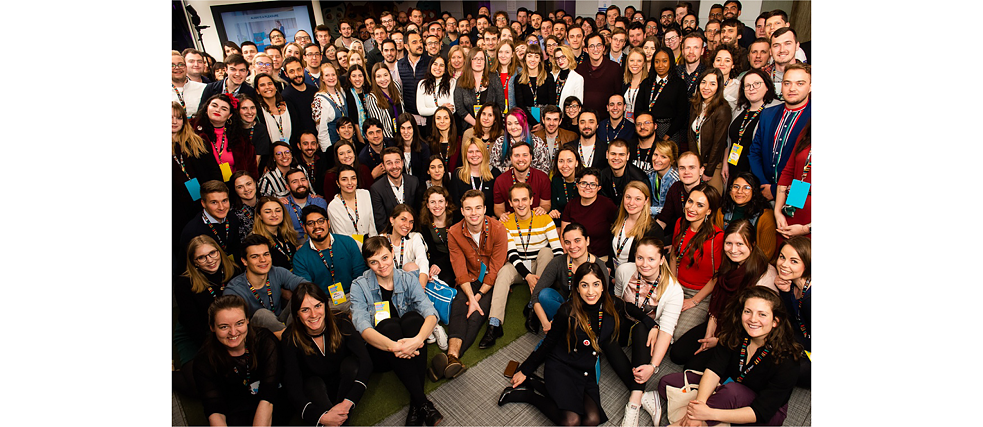
On November 25, 2021, an Online Exchange between youths from the three European Youth Capital partner cities and five ReThink Urban Spaces cities in Thailand (Chiang Mai, Khon Kaen, Bangkok, Kanchanaburi and Hat Yai) took place with 21 youths from Europe and 45 youths from Thailand. The exchange offered the opportunity for youths in Thailand to learn from youths in the European Youth Capitals about how they make themselves heard and the organizational structure of the participating youth groups, about their cooperation with the municipality and the community, as well as about some key areas they are working on and to learn more about some case study projects.
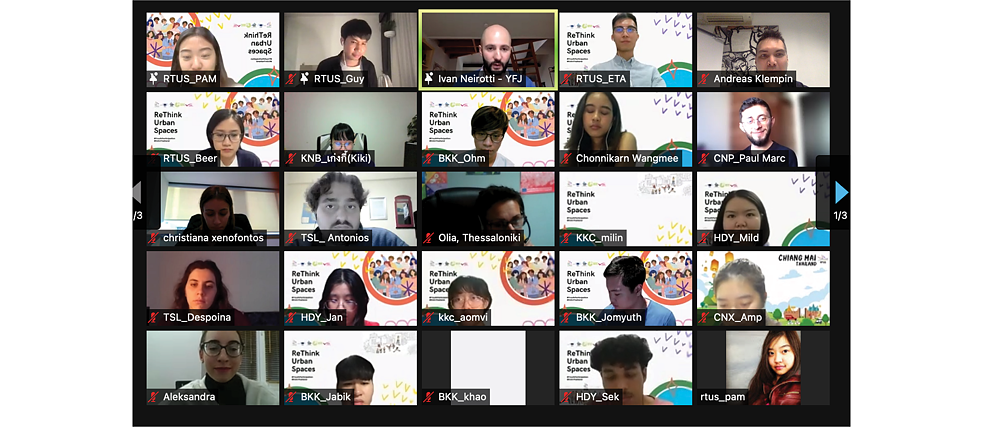
Some common themes identified from the exchange were the generation gap in the cities and how youths can effectively connect with other generations in the community, as well as the multicultural dimension of cities and how diversity should be seen as a strength. Other key shared perspectives were that young people can work hand in hand with decision makers and launch activities and initiatives that aim at giving youths a voice and to listen to young people’s needs ensuring that youths are embedded in the decision-making processes. A second exchange with each individual European Youth Capital to prepare the research trip to each of city in summer 2022 is planned for March 2022.
Thessaloniki: European Youth Capital 2014
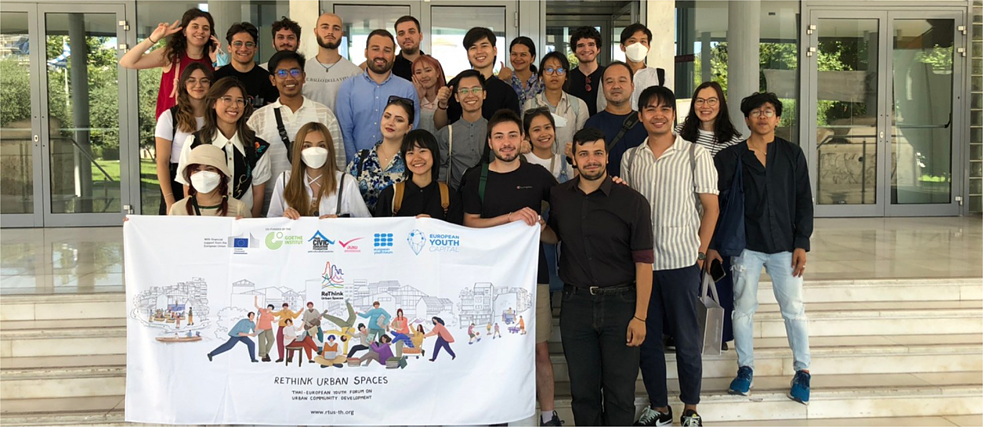
Thessaloniki is the center of youth, both in Greece and in the wider Balkan region. Over recent years, Thessaloniki has been hosting major youth projects and events, numerous education and training actions targeted at NGO’s staff, and their information networks. The city has a well-developed youth sector, comprising of youth NGOs, informal youth initiatives and a very active students’ community taking important initiatives on social and civil issues. The number of students amounts to 150 000 and together with the young residents of the city, Thessaloniki has 200 000 young people representing almost 50% of the central municipality’s population and 1/5 of the city’s total population.
The concept that was chosen by the City for the European Youth Capital year is “Time”. Through the notion of “time” the organizers aimed at promoting the city’s history and role in South Eastern Europe, as well as its future perspectives, development and transition towards its social revitalization. The proposed 2014 program comprised of a wide range of actions, carried out around four pillars: creation, participation, special social groups and new social movements, aiming to enhance European involvement, employment, university life, cultural empowerment, volunteering and social/political engagement of young people. The Thessaloniki EYC 2014 annual program was designed to bring out the full dynamics of active youth and exploit links with European youth policies and instruments, both through informal and formal actions. The European Youth Capital 2014 has brought a significant change for the city and its young people. Thessaloniki Youth Centre has been built to welcome young people with creative activities, hobbies and techniques. Thessaloniki 2014 addressed a very important topic of the European election via an international workshop (E) U VOTE FOR YOU (TH) STRATEGIES bringing young people from Italy, Portugal, Romania and Greece together. Its main subjects were the European elections, the European Parliament and what young people require from the new EP with the aim of strengthening the participation of young voters in the 2014 elections. During the process a number of volunteers (3,000) took part in the European Youth Capital actions, most of them were never before involved in any form of volunteering and many of those are still active in the city. The list goes on because the year did bring sustainable change for the city and its young people seen up until today.
Cluj-Napoca: European Youth Capital 2015
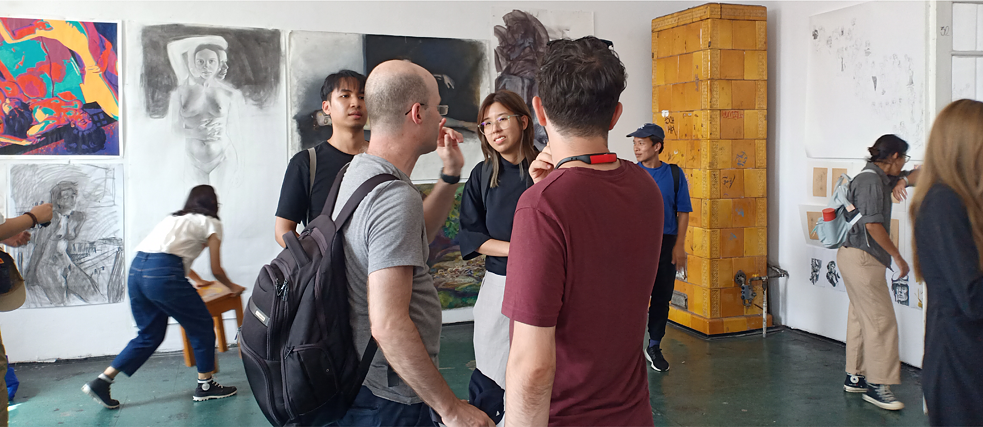
“The Heart of Transylvania”: a cosmopolitan European city and an important destination in South-Eastern Europe, a city with a remarkable potential. Cluj-Napoca is the second largest city in Romania, after the capital Bucharest. Due to the 11 universities present here, the city is considered one of the best places to study in this part of Europe. Universities and a lively youth scene are considered the key driving elements in local and regional urban development.
The mission of Cluj-Napoca, European Youth Capital 2015 was to strengthen the role and support the active participation of young people and youth organizations in creating the change in our society through the process of sustainable, responsible and inclusive urban development, by sharing our space, culture, power, work, joy, vision and common European values, addressing topics such as youth empowerment, advocacy, mobility, structured dialogue and information, under a year-long program in Cluj-Napoca.
The general uniting category for projects was SHARE: “We believe Cluj-Napoca can SHARE its CULTURE to Europe, EUROPE can have an important SHARE of Cluj-Napoca, European youth can SHARE their VISION, about the present and the future of Europe, all of us can SHARE Cluj-Napoca’s SPACE and a year-long experience through proposed projects, events, actions and we SHARE our PROFESSION, knowledge, experience thus creating the most competitive knowledge based economy of the world. We believe a youth capital should SHARE POWER and JOY through mobility, partnerships, networks and volunteering. We all can share being European through this integrated youth program”.
Klaipėda: European Youth Capital 2021
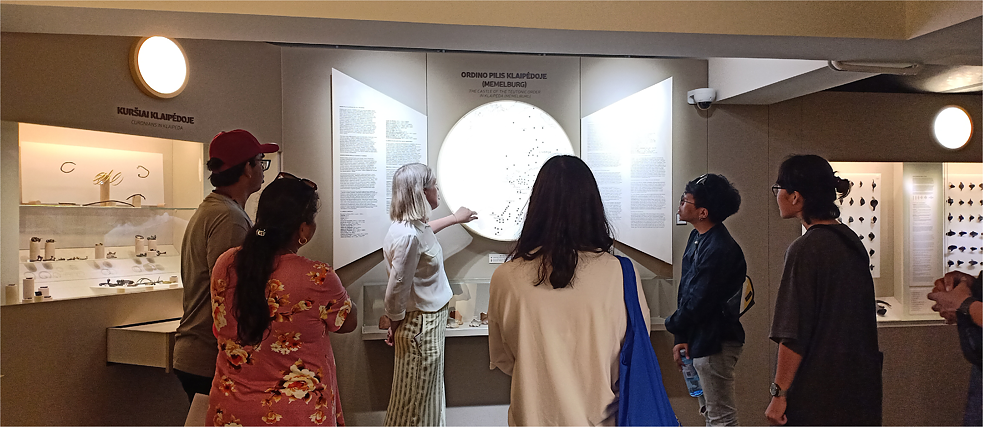
Klaipėda is the third largest city in Lithuania located in the Western part of the country, stretching almost 20 kilometers along the shores of the Curonian Lagoon and the Baltic Sea. Klaipėda is Lithuania’s sea gateway to the world and the capital of the West Lithuania. It is developing as a port city with high life quality, as well as an attractive natural environment. It is an industrial, business, educational, scientific, cultural, health, sports, and recreational administrative centre.
Klaipėda seeks to further encourage youth to believe in their efforts, that they can be the leaders in youth policy and also work together for the welfare of young people in the city and all across the world. Through the European Youth Capital 2021 title applying the overarching theme of CHOOSEKLAIPEDA, the city wants to become open, e-solutions based city, to create opportunities for all youth to grow, live, work, share, implement ideas, exchange, break the standards and innovate. Klaipeda – EYC2021 will offer over 200 capacity building activities, engage young people in organizing around 400 events, build over 70 long-term partnerships with local, national and international organizations, expand our pool of volunteers to 1,000.
Klaipeda’s youth, youth organizations and Klaipeda City Municipality united for the common goal to empower youth. The application process involved over 500 young people, who shared their thoughts, insights and hopes, who brought #chooseklaipeda to life and transformed it into a movement of young people. Over 30 international, national, regional and local organizations, the Youthful Cities Commission of the Union of the Baltic Cities (UBC) that unites more than 100 cities, the Youth Board of the Baltic Sea States Subregional Co-operation (BSSSC) as well as the Youth Board of the Euroregion Baltic (ERB) expressed their support for our aspiration to bring EYC values to the Baltic Sea region for the first time in the history of EYC.